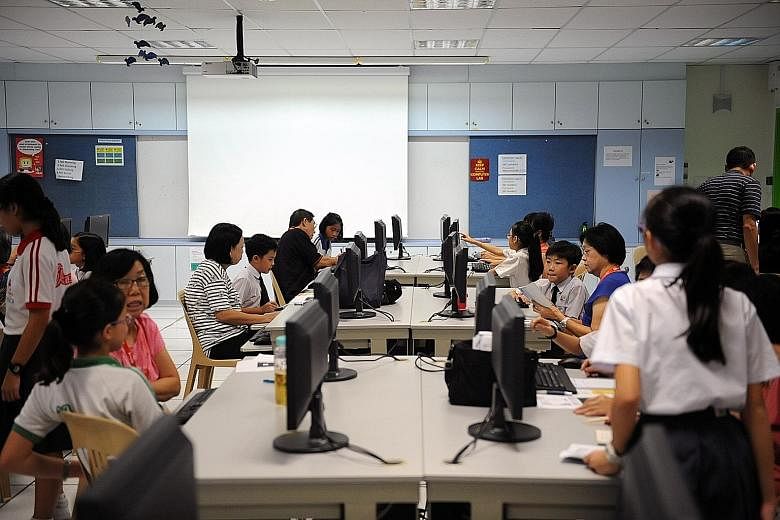Singapore has slipped down the latest global ranking for infocomm development, overtaken by eight countries and territories that used to trail behind it.
The seventh annual report by the International Telecommunication Union (ITU) - the United Nations agency for information and communication technologies - ranks Singapore 19th this year.
This is despite the republic claiming the No. 1 position in a different set of global rankings - by the World Economic Forum - that tracks how well countries use information technology to drive social and economic transformation.
In the ITU's ranking, Singapore was overtaken by Hong Kong, Switzerland, Australia, Germany, the United States, New Zealand, France and Monaco. These economies were behind Singapore in 2010 when it was ranked 11th.
South Korea topped the list, followed by Denmark and Iceland.
The ITU report, released on Monday, benchmarked 167 economies against 11 indicators of telecommunications development.
ITU's researchers measured infocomm access via metrics such as fixed-telephone and mobile line subscriptions, the number of households with computer and Internet access, and Internet surfing speed.
They also measured the level of infocomm use by looking at the percentage of individuals using the Internet, and fixed broadband and mobile broadband subscriptions.
Singapore scored well on these metrics, but its overall ranking was pulled down by the adult literacy rate and the total enrolment at secondary and tertiary school levels.
Senior analyst Clement Teo of market research firm Forrester said: "It would be better to measure infocomm course enrolment at tertiary level, for instance, and those employed in infocomm fields."
Even so, Singapore was mentioned for its bold vision to become a smart nation where resources are better managed by technology.
"It has recently unveiled a bold smart Singapore strategy... to become a major player on the world stage," the ITU report said.
The plan includes using heterogeneous networks that allow mobile users to switch seamlessly between wireless networks based on which can offer faster surfing. Central to Singapore's smart nation plan is the rollout of Aggregation Gateway boxes to supply power to surveillance cameras and traffic sensors deployed islandwide. Such boxes also provide links to the Internet, allowing data collected by cameras and sensors to be transmitted promptly to the relevant public agencies.
A spokesman for the Infocomm Development Authority of Singapore said different ranking studies have their own methodology and emphasis. For instance, the number of fixed-line subscriptions may be low as Singapore is moving into mobile connectivity.
She said: "We continually seek to build Singapore as a digitally inclusive society, and will review different studies as part of our regular process to glean areas of improvements."



